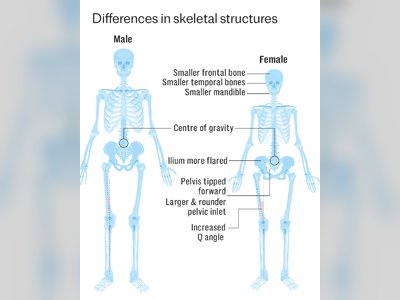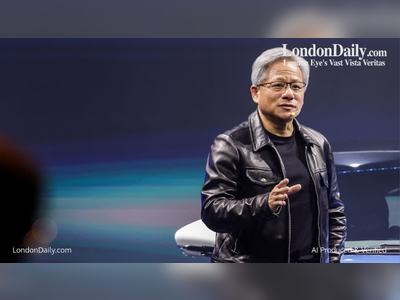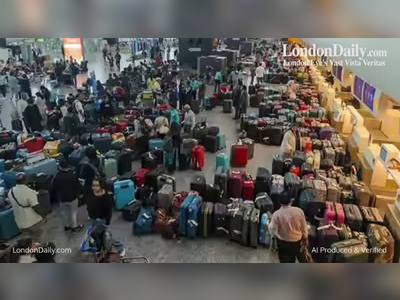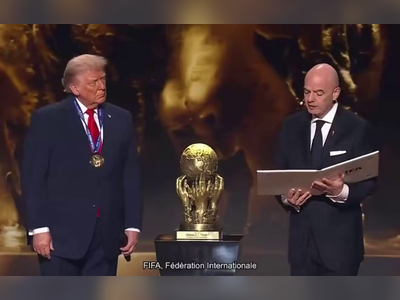
Donald Trump Set to Announce Major Tariffs Amid UK Economic Concerns
UK leaders face scrutiny as US President prepares to unveil tariffs that could impact UK exports and jobs.
Sir Keir Starmer and Rachel Reeves are slated to face inquiries from Members of Parliament (MPs) on Wednesday as US President Donald Trump prepares to announce significant new tariffs during a White House event, termed 'liberation day', scheduled for 9 PM UK time.
UK ministers remain hopeful of securing a trade deal with the US to mitigate the impact of these tariffs; however, Starmer has noted a high likelihood of tariffs being imposed on UK goods, which could jeopardize the UK’s economic plans.
Before Trump's announcement, Starmer is expected to answer questions at Prime Minister's Questions, with the Commons Treasury Committee set to question Chancellor Reeves regarding the implications of these tariffs on her recent spring statement.
Economists from the Office for Budget Responsibility have indicated that US tariffs may hinder Reeves's fiscal strategy, possibly eliminating her budgetary flexibility and requiring further spending cuts or tax increases.
Analysis from the Institute for Public Policy Research (IPPR) suggests that tariffs on car imports could endanger 25,000 jobs within the UK automotive sector, creating severe instability within the industry.
The US is a major market for UK car exports, with 16.9% of cars exported from the UK heading to the US last year, totaling over 101,000 units valued at £7.6 billion.
Trump has previously indicated that a 25% tariff will be placed on all cars imported to the US, presenting an imminent threat to UK manufacturers such as Jaguar Land Rover and Mini.
As negotiations between UK and US diplomats continue, expectations for a deal by Trump's announcement appear low.
Reports suggest UK discussions are focusing on potential modifications to the digital services tax—currently a 2% levy on revenue from major US technology firms—in exchange for tariff exemptions.
Treasury Minister James Murray has stated a desire for a resolution that ensures businesses contribute fairly.
The Liberal Democrats have criticized the government's approach to negotiations, urging for a unified front with Canada and the EU against Trump's tariff policies, calling the current strategy ineffective.
Shadow Foreign Secretary Dame Priti Patel has expressed concerns about the government's ties with China amid domestic economic pressures, pressing for clarity on trade agreements and the government’s commitment to navigating these negotiations in British interests.
Amidst these developments, the UK government is preparing for possible retaliatory measures should Trump impose tariffs.
Business Secretary Jonathan Reynolds has confirmed that they are striving to reverse tariffs but acknowledged that no timeline can be provided.
Starmer highlighted the importance of a measured response as businesses seek stability during this turbulent economic period, emphasizing that a robust economic relationship with the US is paramount to UK interests.
As the landscape evolves, the potential impact of Trump's tariffs on UK exports and jobs remains a significant cause for concern among policymakers and industry leaders alike.
UK ministers remain hopeful of securing a trade deal with the US to mitigate the impact of these tariffs; however, Starmer has noted a high likelihood of tariffs being imposed on UK goods, which could jeopardize the UK’s economic plans.
Before Trump's announcement, Starmer is expected to answer questions at Prime Minister's Questions, with the Commons Treasury Committee set to question Chancellor Reeves regarding the implications of these tariffs on her recent spring statement.
Economists from the Office for Budget Responsibility have indicated that US tariffs may hinder Reeves's fiscal strategy, possibly eliminating her budgetary flexibility and requiring further spending cuts or tax increases.
Analysis from the Institute for Public Policy Research (IPPR) suggests that tariffs on car imports could endanger 25,000 jobs within the UK automotive sector, creating severe instability within the industry.
The US is a major market for UK car exports, with 16.9% of cars exported from the UK heading to the US last year, totaling over 101,000 units valued at £7.6 billion.
Trump has previously indicated that a 25% tariff will be placed on all cars imported to the US, presenting an imminent threat to UK manufacturers such as Jaguar Land Rover and Mini.
As negotiations between UK and US diplomats continue, expectations for a deal by Trump's announcement appear low.
Reports suggest UK discussions are focusing on potential modifications to the digital services tax—currently a 2% levy on revenue from major US technology firms—in exchange for tariff exemptions.
Treasury Minister James Murray has stated a desire for a resolution that ensures businesses contribute fairly.
The Liberal Democrats have criticized the government's approach to negotiations, urging for a unified front with Canada and the EU against Trump's tariff policies, calling the current strategy ineffective.
Shadow Foreign Secretary Dame Priti Patel has expressed concerns about the government's ties with China amid domestic economic pressures, pressing for clarity on trade agreements and the government’s commitment to navigating these negotiations in British interests.
Amidst these developments, the UK government is preparing for possible retaliatory measures should Trump impose tariffs.
Business Secretary Jonathan Reynolds has confirmed that they are striving to reverse tariffs but acknowledged that no timeline can be provided.
Starmer highlighted the importance of a measured response as businesses seek stability during this turbulent economic period, emphasizing that a robust economic relationship with the US is paramount to UK interests.
As the landscape evolves, the potential impact of Trump's tariffs on UK exports and jobs remains a significant cause for concern among policymakers and industry leaders alike.











